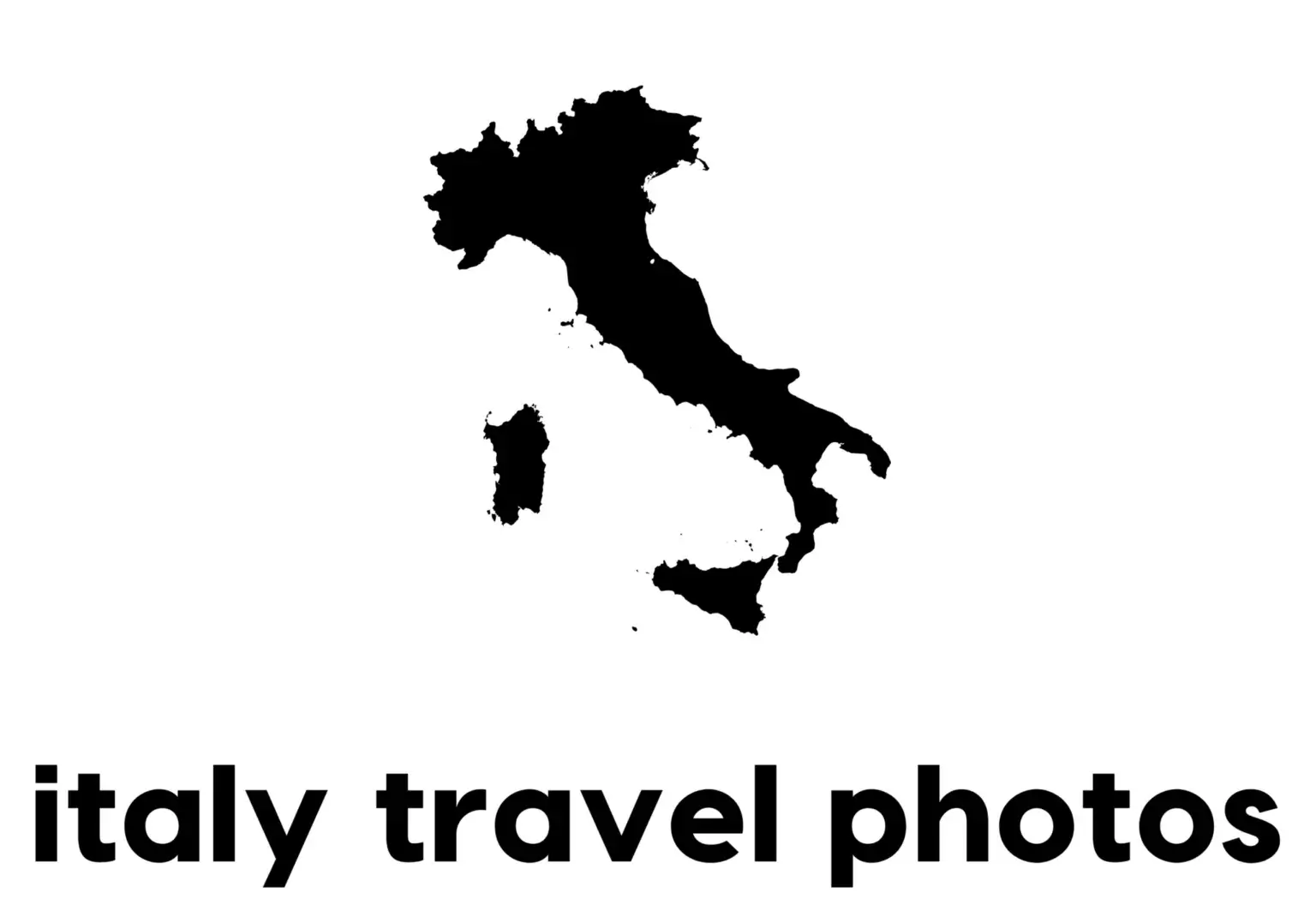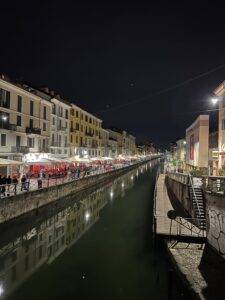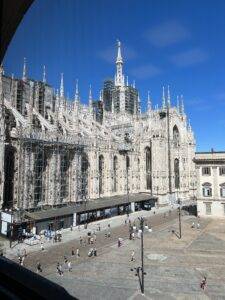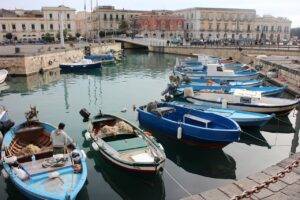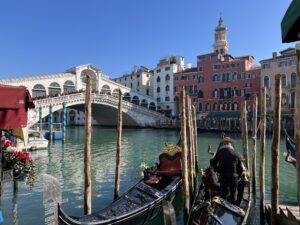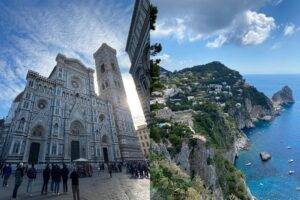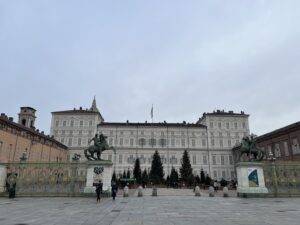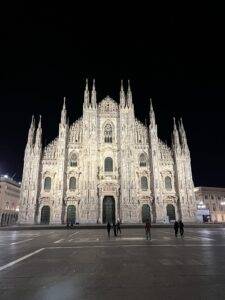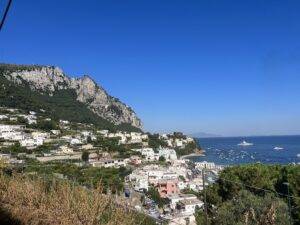How to Move to Italy from the USA

Disclaimer: This article is a general guide on how to move to Italy from the USA. We cannot give legal advice as individual cases may vary according to the individual’s background and circumstances. If you wish to apply for Italian Citizenship or move to Italy, we recommend you speak to a specialized agency.
Is there any place more beautiful and perfect than Italy? The food, the culture, the people; it’s easily one of the best countries in the world. So, if you’ve finally decided to pack the bags and settle in Italy, you need to know how it all works, so in this article, we explain how to move to Italy from the USA
Relocating to Italy from the USA isn’t as easy as it sounds; you can’t just get up and go without any preparation. You need to be organized, methodical, and even open up your mind because foreign cultures can easily shock a person.
But if you’re looking for a detailed guide on how to move to Italy from the USA, we’ve got one right here. Of course, there are still quite a few things you need to sort out, and it’s best if you visit the embassy/consulate. But here are a couple of general steps and dos and don’ts that will make relocating to Italy from the USA much easier for you:
How to move to Italy from the USA - Contents
Long-term or Short-term?
First, you need to decide if you’re going to move to Italy from the USA permanently or want to return after a while.
Short-term visas
Short-term stays include a Schengen visa and a study visa.
Uniform Schengen Visa
The Uniform Schengen visa allows US citizens to live in Schengen Areas like Italy for a maximum of 90 days, return to the States, and then stay for a minimum of 180 days before traveling back to Italy. With this visa, you can explore Italy after getting your passport stamped.
This type of stay is considered a move to Italy on a technicality and obviously won’t work out if you want to stay for longer.
Study Visa
The study visa works for only as long as you’re enrolled in an Italian institution. To qualify, you’ve to be accepted at an institute, then visit the local US consulate and show your acceptance letter.
You’ll also need to show proof of finances (if you can afford residence and health insurance).
Long-term visas
Long-term stays include an employment visa, elective visa and dual citizenship.
Self-Employed Visa
The Self-Employed Visa is ideal for American entrepreneurs and business owners looking to open and operate a company in Italy. However, the self-employed visa just grants an entry into the country. To open up a venture and operate, you must seek certain authorizations depending on your business plan before landing in Italy.
The three most common types of self-employed visa include;
Italy Startup Visa
This visa is for entrepreneurs looking to launch startups focused on technology, science, social impact, or culture in Italy. Similarly, foreigners who wish to join an already existing firm as an executive can also apply for this visa.
Italy Freelancer Visa
This visa targets freelancers and self-employed individuals who can work remotely and do not wish to work for a company.
Italy Entrepreneur Visa
This visa is suited to those foreigners who wish to invest in the Italian economy through an investment of at least 500,000 Euros or greater.
This long-term residence permit allows residence throughout Italy for up to 2 years and is renewable. Visa holders must renew their visas at least 60 days before the date of expiration.
Requirements
To apply for an Italy Self-Employment Visa, you need to provide the following documents:
- Italian Long-Stay Visa application form.
- Two passport-sized pictures.
- A valid passport having at least two blank visa pages and is valid for at least three months beyond the visa issuance.
- The Nulla Osta authorization to perform self-employed work in Italy.
- Proof of sufficient funds to ensure you can support yourself financially.
- Proof of suitable accommodation, including a purchase or a rental agreement.
- Proof of income from the previous year higher than the minimum level required by law for exemption from healthcare contribution (€8,400).
- Certificate issued by the Chamber of Commerce confirming that you have the necessary resources for your self-employed activity, not less than the annual amount of the minimum income (€4,962.36).
- Civic status documents may include marriage certificates or birth certificates.
Additional requirements for those taking on a corporate role in an existing company:
- Proof of the company’s enrollment in the Chamber of Commerce Business Registry.
- Registration number of the company.
- Your official position in the company.
- An official declaration of responsibility stating you will not be working in a subordinate role, issued by the local County Labor Office (Direzione Territoriale del Lavoro).
- Proof of receiving a salary higher than the minimum level required for exemption from healthcare contribution (€8,400).

San Gimignano – Tuscany
Family Reunion Visa
The Family Visa provides a pathway for family members of a non-EU national to gain residency. To be able to call your family members over to Italy, you must hold a valid residence permit. Have a record to display financial stability with annual income above the minimum welfare threshold with health insurance coverage.
The following family members can join you through the Family Visa;
- Your wife
- Children aged under 18
- Dependent children aged above 18 (proof of dependency required)
- Dependent parents (aged 65+)
Once approved, the visa enables you and any eligible family members to enter Italy within 6 months. It then must be converted to permanent residency status by applying at the local Questura office within 8 days of arriving. This long-term visa allows sponsored family members to live, work, and study in Italy with renewable 2-year validity with the sponsor taking legal financial responsibility for dependents.
Requirements
To apply for an Italy Family Visa, several requirements and conditions must be met. These include:
Documents Required
- Original and copy of the Nulla Osta.
- Copy of your residence permit or ID card (if you’re an Italian citizen) and passport.
- Completed and signed the Italy Long-Stay Visa application form.
- Passport-size pictures.
- Valid passports with at least two blank pages.
- Statement from you confirming your desire to have your family members with you and that you meet the family reunification requirements.
- Proof of family relationship (e.g., birth certificates for children, marriage certificate for your spouse).
- Receipt of paid Italy visa fee.
- Proof of booked plane tickets.
- Written permission from the other parent for minors traveling alone.
- Original copies of your birth certificate, proof of financial dependency, and a written statement of dependency for parents.
Financial Requirements
You must earn at least €5,830.76 per year. An additional 50% of this amount is required for each family member joining.
Accommodation Requirements
The accommodation must meet hygienic standards set by Italian law and be large enough for all family members. The minimum area and number of bedrooms vary based on the number of family members.
Employment Visa
For workaholics seeking to know how to move to Italy from the USA, the only route is if you are employed by a company that specifically caters to nulla osta. Nulla osta is basically a document that allows non-Italian immigrants to work; without it or working for a company that doesn’t appeal a nulla osta won’t get you the visa.
To acquire this visa, you must be hired by an Italian firm which then applies for your work permit. Only after your employer has received your work visa can you apply for the Work Visa in your country. Initially, the visa is only valid for 2 years, but renewal can go up to 5 years.
Requirements
To apply for an Italy Work Visa, you must provide the following documents:
- Italian Visa application form.
- Valid Passport.
- Passport Pictures.
- Civil Status Documents.
- Photocopies of any previous visas attached to your passport.
- Travel health insurance valid in Italy and the entire Schengen area, covering a minimum of €30,000.
- Proof of travel.
- Proof of accommodation.
- Proof of sufficient financial means depending on the length of stay.
- Cover Letter explaining reasons for travel to Italy, funding plans, relationship to sponsor (if applicable), and intention to return to home country.
- Documents based on Employment Status.
- Copy of your signed work contract.
- The original and a copy of your Nulla Osta.
- Diplomas/other certificates
Elective Visa
An elective visa works only if you’re retired or have passive income because immigrants with this visa are not permitted to work under any circumstances. This usually works for folks seeking retirement or those who are able to afford the lifestyle without having to work and are actively looking into how to move to Italy from the USA.
Requirements
To apply for an Italy Elective Residency Visa, you need the following:
- Proof of sufficient financial resources to demonstrate the ability to support yourself without working. The minimum requirement is €31,000 per year for a single applicant, and €38,000 for a married couple, with an additional 20% for every dependent accompanying you.
- Proof of residence before moving to Italy verified through a lease/rental agreement or proof of property purchase.
- Proof of health insurance covering at least €30,000 per year and all medical expenses in every EU member state.
- Valid passport for at least three months beyond the visa’s expiration date and two blank visa pages.
- Italy Long-Stay Visa application form
- Passport-size pictures
- Civil Status Documents including birth or marriage certificates
- Police Clearance from your home country.
Dual citizenship visa
Dual citizenship basically permits people with Italian heritage/ancestry to apply for a permanent visa, even if they were born in the USA. Obviously, this route won’t work out for people who aren’t of Italian descent.
Yet, it’s easier said than done. There are numerous conditions one has to fulfill, and only if a person meets all mandated criteria are they qualified to apply.
Some of these specifics include knowing which state consulate you can apply through (it varies from person to person, so if you’re living in Ohio, you might still have to travel to another state).
Who is eligible?
There’s also a law that dictates that your ancestor must have been an Italian citizen after 1912. So, if your ancestor revoked their Italian citizenship due to any reason after 1912, you may not be eligible.
The same law dictates the said ancestor must have been an Italian citizen when their children were born. So, the right of Italian citizenship must have been passed from said ancestor to their child and so on.
This means if your ancestors were living with Italian citizenship at the time of the birth of their child (who might be your mother or grandmother or even aunt), only then can you apply for the visa. If not, then you’re not eligible.
Of course, for all visa types, there are extensive details and rules and regulations you need to look into. This is why we suggest consulting a travel agency, preferably one that specifically caters to Italian citizenship, so you have a better idea of your standing.
Some of the people who have worked on this site have used ItalyMondo. However, there are several companies that do this, and we encourage you to do your own research and speak to several of them before making a decision. (note: this is not a paid article. We don’t receive any commission from referring such companies).
Documents and Processes
US Documents
You can find the list of documents you need from the consulate, but here are a few you need if you’re applying for dual citizenship:
Vital Records
Birth certificates, marriage licenses/certificates, even divorce records etc. must be issued from Vital Records.
Apostille
All documents mentioned above must be apostilled (certified to be used abroad) by the Secretary of State.
Translation
All English documents must be translated to Italian.
Certificate of Naturalization
This document is only for those applying for dual citizenship. Certificate of Naturalization is basically proof of your Italian descent.
USCIS Appointment
If your ancestor is still alive, you must make an appointment with the USCIS and get a certified copy.
Letter of No Record of Naturalization
If your ancestor is Italian and you are qualified, but your ancestor never naturalized, you have to get this letter from USCIS and the National Archives.
Italy Documents
You’ll need to request some documents from Italy if you’re applying for dual citizenship, such as the birth, death, and marriage certificate of the ancestor you are using to prove your Italian descent.
Commune information
Information about which commune your ancestor belongs to (where they were born). These can be difficult / Time consuming to obtain on your own.
Residency
Once you get your visa, you’ll need to register for residency. Once again, it depends on the type of visa, but you must register with your preferred commune to be eligible. Once you’re an established commune resident, you can declare residency.
Tax Code/Codice Fiscale
You need to apply for a tax code as soon as you enter Italy. This can be done by filling out a form and submitting it. The tax code is a must since it basically becomes your identity.
Citizenship Application
You can start the application if you qualify for Italian citizenship and have all the documents required (translated and apostilled). This can be done at any commune in Italy. However, it can be a long and complicated process. We recommend that you contact an immigration lawyer or company that specializes in this. There are several agencies with experience in helping Americans of Italian descent obtain their Italian citizenship, such as ItalyMondo.
Now you know how to move to Italy from the USA
We have explained how to move to Italy from the USA, but once you arrive, there are a few things that you should know to ensure you settle in as quickly as possible.
Healthcare
The state usually provides healthcare in Italy. However, you will need to apply for a Health Card (tessera sanitaria). The process for this will depend on the region you live in, whether you are an Italian citizen, and if you have a Fisical Code (codice fiscale). If you are an Italian citizen, it’s much easier if you are an Italian citizen AND have a Fisical Code; you might be able to apply online. You might otherwise have to make an appointment in your local commune.
This card is essential as you often must present it when purchasing prescriptions from the pharmacy or visiting the hospital. Once you have the health card, you can apply to a medical clinic and be assigned a doctor. This varies a lot by region, so you will need to ask your local commune for information on the process.
Language
Depending on where you live, you might want to prioritize studying the Italian language.
The larger northern cities such as Milan, Turin, and Florence have a strong presence of expats and international businesses. Therefore, you will find plenty of English-speaking locals. You might even have an advantage in the job market for companies with an overseas HQ. However, you will settle in more quickly if you can speak moderate-level Italian, and it will be important if you want to work for an Italian company.
If you plan to live outside the major cities, you must learn at least basic Italian to communicate with anyone. Traditionally, these places do not get a lot of tourism, and the people who live there are not used to speaking English, so it is recommended that you learn Italian as quickly as possible.
Cost of Living
Believe it or not, Italian costs of living are much lower than that of the U.S. We may think European countries are lavish, but they’re quite cheap. However, it should be noted that the minimum wage is even cheaper, so you need to work with a company that’s reputable and offers enough to live comfortably.
The cost of housing and utilities vary from region to region and even city to city. Northern regions are much more expensive, but they also have higher-paying jobs
North or South? What Side of Italy is Best for You?
Now that you have made up your mind to move to Italy, you must be wondering whether to move to the North or South of the country. While there is no straightforward answer, as both regions are uniquely charming, there are certain differences that can help you make an informed decision based on your circumstances.
North
Northern Italy encompasses major metro areas like Milan, Venice, Florence, and Bologna and boasts strong infrastructure. The North has a strong economy and an abundance of jobs, particularly in finance and technology, making it an ideal spot region for career-focused individuals. However, the cities here come with a higher cost of living.
South
Southern region, on the other hand, is more centered around agriculture and tourism. It extends from Rome (which is technically in Central Italy) through peninsulas and islands like Sicily. Life here moves at a slower pace than in the North. It is peaceful, slow, and has lower cost of living. However, compared to the North, the job opportunities aren’t as much but the South tempts with cultural vibrancy and affordability.
When ultimately deciding where to move to, list down priorities like employment, budget, and lifestyle and factor in personal interests and values to determine whether the north or south suits you best.
Popular Jobs in Italy
Italy presents dynamic job opportunities across various sectors that welcome qualified foreign applicants, particularly if one speaks Italian as well. With global companies having offices in cities like Rome, Milan, or Florence, professionals with high aspirations can land a spot in multinational firms. Similarly, those with technical skills, like software developers or UX designers, can find ample jobs in the tech sector. Experienced engineers, especially those working in the automotive or aerospace industries, are highly sought after, thanks to northern Italy’s manufacturing economy.
Healthcare employers also actively recruit foreign doctors and caretakers. Italy has a high demand for TEFL-certified teachers to instruct English, which pays very well even without a Bachelor’s degree (preferred but not always required). Students can also land part-time jobs in restaurants or cafes to earn and support themselves while working. The job searching process in Italy becomes easier when you learn the local language.
Is Italy Worth it? Employability, Growth, and Security
As far as employability is concerned, Italy’s job market is quite diverse, meaning there is a place for anyone from any professional field. With strong sectors in manufacturing, automotive, and IT industries, professionals with technical backgrounds, in particular, will find it rather easy to find a job and make a living in Italy. Other streams like design, management, fashion, medicine, and others are also highly employable.
Working a job in Italy is not about just getting the work done, it is about providing the best environment to the employees so they can be efficient and creative. Firms accomplish this by offering work-life balance through leaves, flexible working schedules, and promotions. Additionally, with low crime rates across Italian cities and towns, Italy enjoys a high level of safety. The healthcare system in Italy is also one of the best in the world.
Are you ready to move to Italy from the USA?
It is fair to say that Italy offers a well-rounded experience with flourishing economy, and abundance of sightseeing activities. So, if you are looking to relocate and start fresh, consider Italy.
